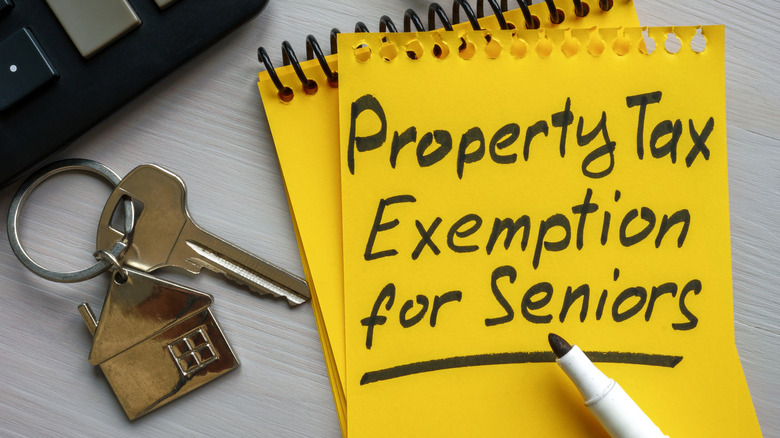Seniors Shouldn't Ignore This Property Tax Exemption
The National Association of Home Builders reported that homeowners paid an average of $4,112 in real estate taxes in 2023. Every state saw increases from 2022, with the burden hitting hardest in major metropolitan areas. A LendingTree analysis looked at the 50 largest metros and found median tax bills surged 10.4% between 2021 and 2023. The range spans from $1,091 in Birmingham all the way up to $9,937 in New York City. It's no surprise that retirees are starting to look for cheaper states to retire.
What many retirees don't realize is that senior exemptions can dramatically lower property tax bills. 16 states plus D.C. had dedicated property-tax exemptions for older homeowners in 2025. Another 17 states give tax credits instead, and five states freeze your assessments completely. The savings can add up fast. For example, Colorado halves taxes on the first $200,000 of value; Florida reduces the taxable base by up to $50,000 for seniors; and Kansas refunds 75% of property taxes for qualifying low-income seniors. Every year, homeowners have the chance to save thousands — sometimes tens of thousands — but many fail to take advantage. The savings potential grows when seniors pair their exemption with familiar tax deductions that homeowners can claim.
What it takes to qualify for senior exemptions
Eligibility hinges on three pillars — age, residency, and income. Most programs set a minimum age, require primary residency, and cap household income. While age eligibility typically starts at 65, some states start earlier. The Washington Department of Revenue opened eligibility at 61. Meanwhile, the Texas Comptroller maintained the traditional 65-year threshold but requires that applicants occupy the home as their primary residence to qualify for the extra $10,000 school-district exemption. If you're planning ahead, you can also layer on little-known tax breaks available once you hit your 50s for maximum benefit.
Residency rules will vary from state to state. Some require many consecutive years in the home, while others only require ownership by the end of the tax year. The Colorado Division of Property Taxation demands 10 consecutive years of ownership and occupancy before homeowners can be eligible. Florida does things completely differently depending on which county you're in. Counties that follow Florida Statutes Section 196.075 can give up to $50,000 off for low-income owners 65 and older and, in certain cases, a full exemption if the property is worth less than $250,000 and has been a residence for 25 years. Other states keep it simple. New York requires just 12 months of ownership, while Washington asks only that applicants own the property by December 31 of the assessment year.
How to actually apply for your exemption
These programs follow strict deadlines. You'll want to refer to the most recent application windows published by assessors, noting that late filings are often accepted under limited conditions, without appeal rights. Applications typically open early in the year and close mid‑year; check the current filing window with your local assessor. In Colorado, applications open on January 1st every year and close July 15th, with late filings accepted until August 15th at the cost of losing appeal rights. In New York, most senior citizen exemption claims are due by March 1st, although local assessors retain discretion to grant 30-day extensions for recent home purchases.
Where applications are submitted is just as important as the information provided. County assessors typically process exemption forms, while large cities often accept online or mail submissions through their finance departments. Colorado applicants go straight to their county assessor's office. The New York City Department of Finance takes SCHE applications online or by mail and gives you a written decision within 90 days once they have everything. Texas homeowners send over-65 forms to their county appraisal district – the chief appraiser decides if you qualify. Should an application face denial, seniors can appeal property taxes. For example, the Hays Central Appraisal District provides a deadline for filing written protests for homestead properties on April 30th or 30 days after the appraisal district sends a notice of appraised value, whichever comes later.


